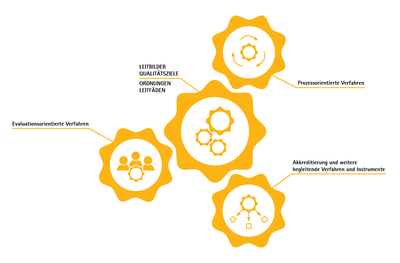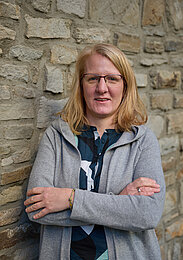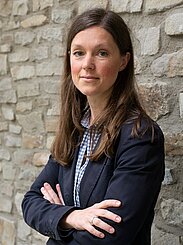Quality development at the Folkwang University of the Arts
The Folkwang University of the Arts strives to establish dialogue-oriented quality-related work that, taking into account the specific institutional factors, enables it to achieve defined quality objectives, while also making decisions on university development with a view to reconciling all the varied interests of the university members.
Since autumn 2022, Folkwang University of the Arts has had a mission statement teaching that is reflected in the curricula of the Folkwang study courses.
The quality-related work at Folkwang was strategically devised as part of the ‘Excellently advised’ quality project, and has been further developed and successively implemented ever since. It encompasses process-oriented and evaluation-oriented methods and instruments that can each be applied in a needs-based and goals-based manner to support individual quality targets.
The Quality Development department is also responsible for coordinating and monitoring the accreditation and reaccreditation procedures for Folkwang University of the Arts degree programmes requiring accreditation.
There are also a number of accompanying methods and instruments that have given rise to a variety of goal-oriented measures.








